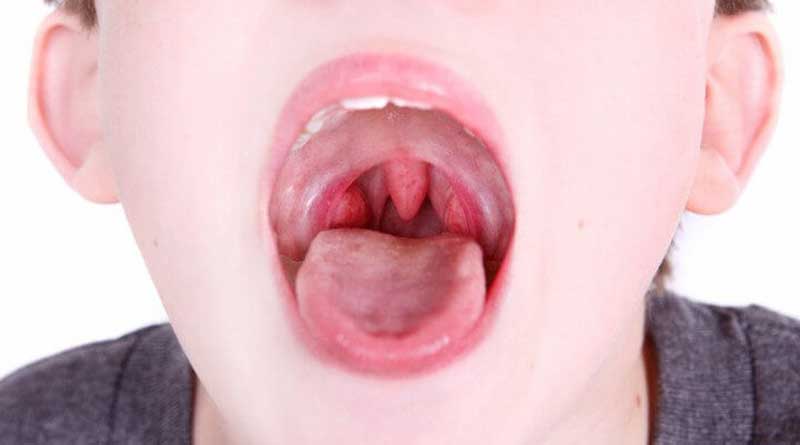For many decades, doctors have been advising the removal of tonsils from children as a measure to treat persistent sore throats. In fact, they sometimes suggest an intervention called adenoidectomy. In which the adenoids are also removed.These structures of the lymphatic tissue act as the first barrier of the immune system to stop the passage of pathogens to the respiratory tract. However, they usually ignite in the first years of life, triggering discomfort in the surrounding areas.Given that in the medical community it is considered that their absence does not affect health in adulthood. Many professionals choose to operate them when there are recurrent infections, breathing difficulties or enlargement of them. Are these procedures recommended?Well, according to research published in JAMA Otolaryngology-Head & Neck Surgery. This practice could be affecting the appearance of diseases in the future.
Details of the study…
 A research group, led by Dr. Sean Byars of the University of Melbourne,conducted the analysis of a massive data collection of 1.2 million Danish children, born between 1979 and 1999, concluding that there may be consequences for the tonsillectomy surgery (tonsillectomy).The participants and control groups were selected in such a way that their health did not differ significantly before the intervention. After comparing data, Dr. Byars and his team found that there is a relationship between tonsillectomy and the risk of some respiratory diseases.To be more specific, subjects whose tonsils or adenoids were removed before 9 years of age had up to three times more incidence of allergic and infectious conditions such as asthma, influenza and pneumonia in later years. Those who underwent an adenoidectomy had a twice higher rate of the same diseases.Surprisingly, the analysis added that many of the symptoms of tonsillitis and adenoiditis that removal surgeries seek to improve, return soon after the intervention. This means that the person can return to have respiratory infections and chronic inflammation of the ears.Therefore, it was concluded that any short-term benefit is insignificant compared to the risks involved. Because of this, the experts suggested avoiding such procedures when there are other alternative treatmentsavailable.They also added that if options are exhausted, doctors should try to delay surgery as long as possible. This in order to allow a better development of the child’s immune functions.
A research group, led by Dr. Sean Byars of the University of Melbourne,conducted the analysis of a massive data collection of 1.2 million Danish children, born between 1979 and 1999, concluding that there may be consequences for the tonsillectomy surgery (tonsillectomy).The participants and control groups were selected in such a way that their health did not differ significantly before the intervention. After comparing data, Dr. Byars and his team found that there is a relationship between tonsillectomy and the risk of some respiratory diseases.To be more specific, subjects whose tonsils or adenoids were removed before 9 years of age had up to three times more incidence of allergic and infectious conditions such as asthma, influenza and pneumonia in later years. Those who underwent an adenoidectomy had a twice higher rate of the same diseases.Surprisingly, the analysis added that many of the symptoms of tonsillitis and adenoiditis that removal surgeries seek to improve, return soon after the intervention. This means that the person can return to have respiratory infections and chronic inflammation of the ears.Therefore, it was concluded that any short-term benefit is insignificant compared to the risks involved. Because of this, the experts suggested avoiding such procedures when there are other alternative treatmentsavailable.They also added that if options are exhausted, doctors should try to delay surgery as long as possible. This in order to allow a better development of the child’s immune functions.
In which cases should the tonsils be removed?
The adenoids and tonsils shrink as the child grows; therefore, an intervention is not always required. In particular, there are certain cases in which tonsillitis must be treated with surgery, which is determined by an otolaryngologist. These include:
- Recurrent throat irritations: the child must have had at least six infections over a year, for two consecutive years.
- Obstructive sleep apnea: if the enlarged tonsils or adenoids affect the obstruction of the airway during sleep. This condition causes stops in breathing while sleeping and drowsiness during the day.
- Ear infections: as in the case of the throat, these must be presented repetitively, in a minimum period of two years.
What alternatives are there to the extraction of the tonsils?
 To avoid recourse to tonsillectomy surgery, the professional in charge may indicate alternative treatments. If the child has enlarged adenoids that block the passage of air through the nose, treatment with steroids can help alleviate the problem.Analgesic medications and antibiotics may be suggested to provide temporary relief of tonsillitis symptoms. However, it is important to administer them under medical supervision, previously checking if there are risks of side effects. Other useful measures are:
To avoid recourse to tonsillectomy surgery, the professional in charge may indicate alternative treatments. If the child has enlarged adenoids that block the passage of air through the nose, treatment with steroids can help alleviate the problem.Analgesic medications and antibiotics may be suggested to provide temporary relief of tonsillitis symptoms. However, it is important to administer them under medical supervision, previously checking if there are risks of side effects. Other useful measures are:
- Drinking cold liquids or eating palettes
- Drink soft and warm drinks (never hot)
- Gargle with warm salt water
- Consume specific candies for inflammation
- Cover the throat so it does not get cold
- Consume foods rich in vitamin C
- Avoid the consumption of irritating and spicy foods
Summarizing…
Tonsils fulfill immune functions that help prevent diseases. Therefore, studies suggest that its extraction may increase the risk of respiratory infections or allergies. Although more evidence is required to confirm this relationship, the ideal is to explore other treatments before surgery.













